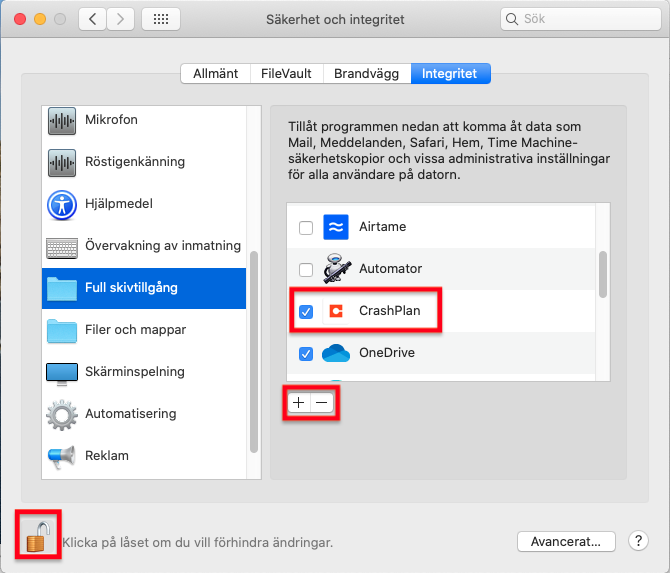

- #Does crashplan for mac keep previous version pro#
- #Does crashplan for mac keep previous version Pc#
- #Does crashplan for mac keep previous version plus#
- #Does crashplan for mac keep previous version windows#
Given the pricing of cloud storage it's also pretty well priced.
#Does crashplan for mac keep previous version plus#

The initial setup cost was higher than a run of the mill NAS, but at the time it wasn’t significantly higher than a four bay NAS. My S3 storage is right now sitting at around 120 GB.
#Does crashplan for mac keep previous version windows#
The WHS connector program is installed on all client computers which allows them to be backed up with the Client Computer Backup which is the same incremental image based backup system as Windows Server Essentials 2012.įor offsite storage of important data, I use the Cloudberry plugin for WHS 2011 which then backs up folders I have selected to Amazon S3 Reduced Redundancy Storage. If the main drive were ever to fail, the secondary drive has a copy of everything. The Server Backup feature does a complete backup of everything on the server to the backup drive. We utilize the server shares for our data – documents, pictures, music, videos, and general file storage. One drive has the OS partition (60 GB), and the share partition (1800 GB) and the second drive is for Server Backup. Two WD Black 2 TB drives provide the storage, which is plenty for me. Though it has four drive bays, I’m currently only using two of them. My home server is a HP MediaSmart EX485 – a lowly single core Celeron with 2 GB of RAM. Though missing some of the new functionality such as Storage Spaces, it still has Server Backup, Server folders, and Client Computer backup. WHS 2011 offers many of the same features as Windows Server Essentials 2012, but at a much lower price point. To backup and manage all of these devices, I have invested in a home server which is running the now defunct Windows Home Server 2011 operating system. Right now in our household, we have a desktop, two laptops, and a HTPC. Maybe you already do some local backups, or subscribe to a cloud backup service but what about how I backup my devices? In the interests of not looking like a hypocrite, it's likely best to detail what I currently use: Hopefully by now, you’ve given backup a good amount of thought. Also, you have to make sure that you actually store all of your files in these cloud drives in order to get the offsite storage.
#Does crashplan for mac keep previous version Pc#
Just be sure that you sync your entire cloud folder to your PC that is performing the backups to gain a local backup of your cloud drive. If paired with a local backup using the built-in utilities, it could work very well. With Consumer Cloud, you lose control over the retention period for your files, and thirty days is not a huge window. So other than Dropbox with the PackRat addlon, which frankly is too expensive, Consumer Cloud is not as good as a dedicated backup system, though it is miles better than no backup at all.

#Does crashplan for mac keep previous version pro#
Packrat is only available with Dropbox Pro, and is an additional $3.99/month or $39 per year on top of the Pro pricing. But if a file is deleted and no longer in the Trash folder, it’s gone.ĭropbox also has versioning, so you can go back to the previous version or restore any file for thirty days as well, and optionally with the Packrat feature added on allows unlimited versioning and deletion recovery. Google Drive includes versioning, and again keeps a history for 30 days. Luckily in the case of OneDrive, it has a recycle bin feature which allows the restore of any deleted files, but only for a maximum of thirty days. If you were using your cloud storage as backup, you may be in trouble. For instance, if I delete a file from OneDrive on the web, the next time my PC syncs up with OneDrive it also deletes the local copy. The goal is to keep all of your files available on all of your devices. Is this not a backup?Ĭonsumer Cloud is less about backup, and more about synchronization. Everyone now has access to cloud storage, and often quite a bit of storage for free. You’ve made it this far and you’re thinking “but what about Google Drive/OneDrive/Dropbox/etc?”Ĭonsumer Cloud as I’ll call it is changing the way we store data.


 0 kommentar(er)
0 kommentar(er)
